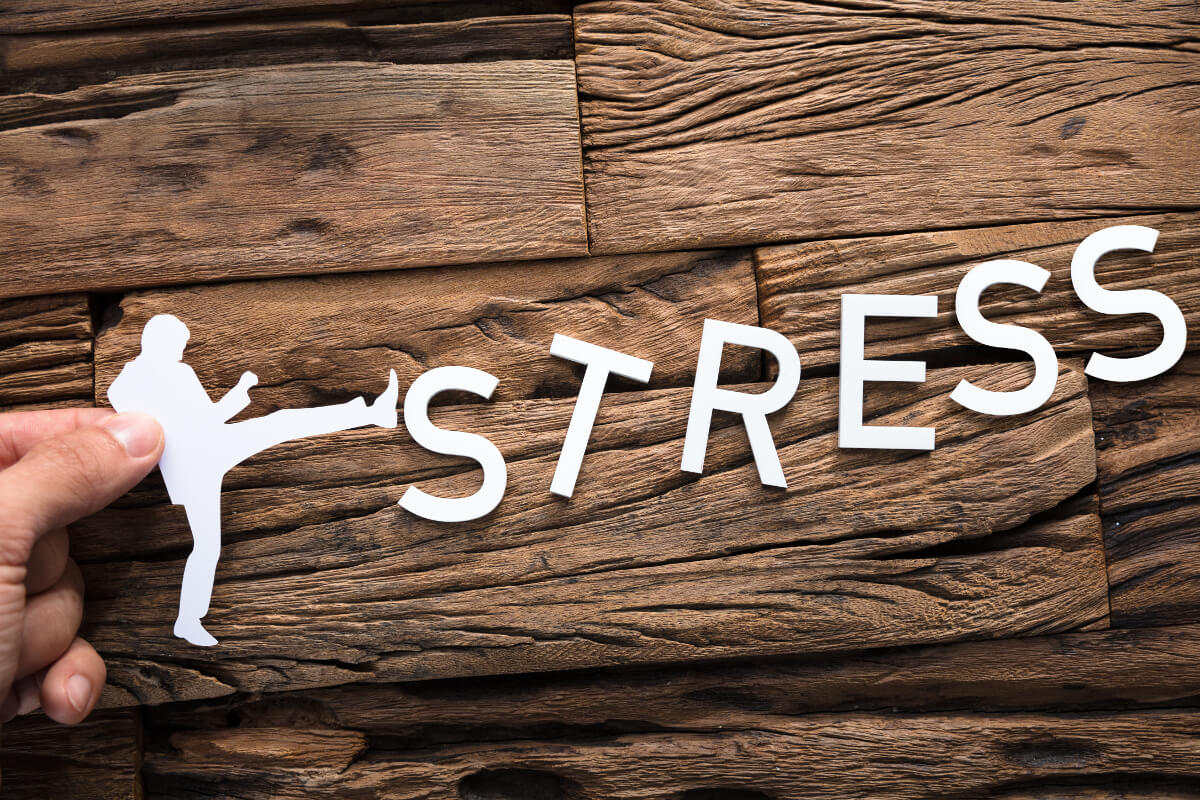Stress brought on by an anxiety disorder can be severe enough to interfere with daily activities and affects those around us in obvious and observable ways.
High-functioning anxiety, however, is not as detectable, mostly because those living with it continue their day-to-day life and appear to be fine on the outside.
Internally, however, things are often much more complicated with struggles of unwanted anxiety.
Suffering in Silence
An individual living with high-functioning anxiety may appear to be calm and engage in life activities without the effects being easily visible.
In fact, most people probably wouldn’t have a clue about the daily challenges faced by someone living with a high-functioning anxiety disorder.
That’s because they can make their lives appear anxiety-free, albeit suffering in silence.
People with high-functioning anxiety tend to be high-powered and successful professionals who propel forward. Punctual and proactive, constantly busy and working long hours, creating routines and planning ahead.
These are some of the characteristics that are often thought of as positive, with daily routines helping create certainty in life.
On the surface, these routines may come off as ambition, but in reality, the anxiety takes control. What powers life isn’t the drive to succeed, so much as the fear of not succeeding.
The silent signs

Functional anxiety tends to reveal itself in the form of over-achievement, perfectionism or controlling, strict behaviour. Many of these behaviours are often coping mechanisms for underlying anxiety.
But when routine planning derails, the disruption also means being unprepared and the fear of losing control leads to anxiety taking the reins.
The compulsive use of these coping mechanisms isn’t healthy and can often heighten feelings of anxiety, leading to more complicated mental health disorders.
A chronic state of anxiety can cause sleep disorders, extreme fatigue, and leave you feeling burned out.
Managing high-functioning anxiety is challenging, almost like another task on an already long to-do list. Left untreated, the effects of high-functioning anxiety can cause considerable potential side effects and have an impact on physical and emotional well being.
For some sufferers, relying on emotional crutches such as alcohol or substance abuse as an unhealthy coping method may result in damaged relationships and reduced overall quality of life.
Attempting to self-cope and hold things together may lead to thinking that there is no need for legitimate concern or support. After all, high-functioning anxiety is not a recognised mental health diagnosis.
Because of this, sufferers may be more reluctant to discuss their deep feeling of concern or acknowledge and deal with their issues.
However, living with fear and anxiety is not something anyone has to accept.
Healthy ways to cope

Acknowledging there is a problem is one of the first steps on the road to improvement. Seeking treatment is a big deal if you have high functioning anxiety, but the good news is that it’s treatable.
Making some simple lifestyle changes can also make a big difference in the quality of life and reducing anxiety.
Just talk
Embracing symptoms and talking about worries is a vital part of getting the help needed. Whether reaching out to friends, family or a medical expert, talking can help maintain good mental health and wellbeing.
Opening up about mental health may also pave the way for those still struggling in silence.
Boost your mood
Although there is no miracle diet that can cure anxiety, watching what we eat and drink can certainly help make a difference in general mood or sense of wellbeing.
Eating a balanced diet with plenty of nutrients is essential for overall physical and mental health.
Mood-boosting foods such as complex carbohydrates can increase the amount of serotonin in the brain, which has a calming effect.
Since Omega-3s appear to affect neurotransmitter pathways in the brain, it makes physiological sense to also include omega-3 fatty acids, found in fatty fish, walnuts, seeds and dietary supplements.
Hydrate your mind
Staying hydrated – particularly during stressful times is one of the easiest ways to stay healthy and is essential for delivering nutrients to the brain. Even mild dehydration can affect one’s mood and have negative effects on cognitive performance.
It’s not uncommon for people to resort to the consumption of alcohol to deal with their anxiety.
More often than not, people turn to alcohol when stressed in an effort to relax and reduce anxiety. While alcohol can reduce anxiety temporarily, frequent use may exacerbate an anxiety disorder.
Breath away anxiety

Practising deep, calming breathing techniques is a tried and tested form of anxiety relief. Deep breathing can reduce blood pressure, regulate sleep and decrease anxiety.
What’s more, it only takes a few minutes, can be done anywhere and easily incorporated into existing daily routines, such as teeth brushing.
Yoga, which focuses on breathing exercises, meditation as well as physical postures is a great way of easing anxiety and improves feelings of wellbeing.
Exercise and mental health

Regular exercise and good mental health go hand in hand. Exercise is a powerful medicine for many mental health challenges, including anxiety.
It’s a great way to relieve tension and stress and enhances wellbeing through the release of endorphins – “feel good” chemicals in the brain.
Rest is best
A lack of sleep is a common symptom of high-functioning anxiety. The more stress in your life, the less likely you are to fall or stay asleep easily. When it comes to quality and quantity of sleep, almost every system of the body is affected, especially the brain.
Sleep and anxiety have a strong relationship, so it’s important to take a step back and take care of yourself by resting and getting the ideal amount of sleep.
Just say No!
The inability to say “no” is another struggle in the day to day life of someone with high-functioning anxiety.
You might be a people-pleaser and afraid of letting others down, but it’s important to focus on you and yourself. Learn to be more protective of your time, and don’t be afraid of offending others.
Shift your attention away from the stress and anxiety and do something you enjoy. Be selfish – “do you”!
Get help
Many people living with stress and anxiety learn to ‘simply’ cope. But this is highly toxic for your physical and mental health.
When your anxiety starts to affect your career and personal relationships, and take over your life in unhealthy ways, it’s time to seek professional.
If you are ‘coping’ with high levels of stress and anxiety, please contact our professional team at White River Manor for a confidential chat about how we can help you reset your life.






